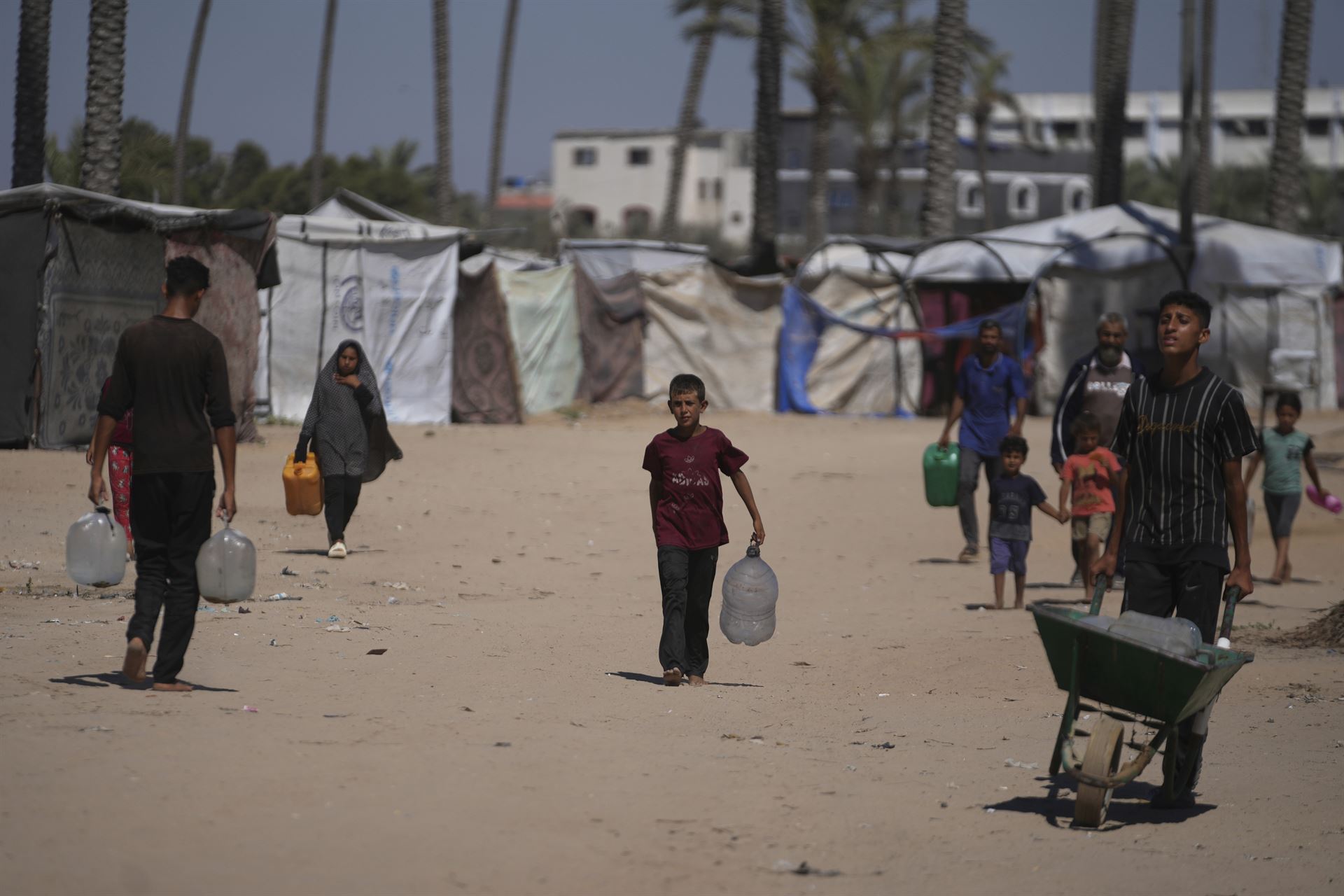Netanyahu revives controversial relocation proposal during meeting with Trump in Washington

A renewed suggestion from Israeli Prime Minister Benjamin Netanyahu, during his meeting with US President Donald Trump in Washington this week, to relocate Palestinians out of Gaza may again cloud the prospects of a ceasefire in the battered Palestinian enclave, experts said.
Speaking to reporters at the White House during his dinner with Trump on July 7, Netanyahu said, “We’re working with the United States very closely about finding countries that will seek to realize what they always say — that they wanted to give the Palestinians a better future.”
“If people want to stay, they can stay, but if they want to leave, they should be able to leave,” he said.
Netanyahu also said Israel would not want a Palestinian state after the Hamas attacks on Israeli soil on Oct 7 in 2023 — a stand which goes against UN Security Council resolutions on a two-state solution to the crisis.
Former Israeli diplomat Alon Pinkas, in an interview with Al Jazeera, called the talk of relocation “a recipe for catastrophe” as it ensures that “no postwar agreement in Gaza is durable”.
The move to relocate Gazans had previously been condemned by the international community, including the Palestinian Authority.
Trump, in his meeting with Netanyahu, said that talks to end the conflict in Gaza were “going along very well” and expressed confidence that Hamas, a Palestinian militant group, was willing to end the 21-month conflict.
Steve Witkoff, the US envoy to the Middle East, who was also present at the dinner, was heading to the region in the coming days to work on the ceasefire deal.
Ayman Yousef, a professor of international relations at the Arab American University in Jenin, West Bank, told China Daily that there are some opportunities for a political settlement between Hamas and Israel.
“Now we have two perspectives. The American perspective represented by Trump who’s trying to convince Netanyahu to go for this political settlement or political deal with Hamas,” he said.
“Netanyahu tried to convince President Trump that Hamas is more connected with an Iranian project and it is the continuation of the Iranian threat, and in order to settle this dispute with Hamas and Iran, more military force is needed.”
Trump said Iran and the US are in contact for the possible resumption of talks.
But Iranian Foreign Ministry spokesman Esmaeil Baghaei dismissed the claims made by Trump regarding the nuclear negotiations between Tehran and Washington.
“No request for a meeting has been made to the American side from our side,” the senior Iranian diplomat said on July 8.
Gokhan Batu, an analyst on Israel studies at the Center for Middle Eastern Studies in Turkiye, told China Daily, “Trump’s recent public commitment to ending the war in Gaza is likely to remain a critical point of discussion. Yet, it is not merely the end of the war that matters, it is how the war will end — that carries significant implications.”
Meanwhile, there were reports of Israeli strikes on civilian homes and shelters for the displaced at dawn on July 8, resulting in the deaths of more than 20 people.
Five Israeli soldiers were also killed in the northern Gaza Strip on July 7, Israel’s military said.
A statement published by the Israeli Prime Minister’s Office on July 9 said that Netanyahu had an unscheduled second meeting with Trump on July 8 after the US president hosted a dinner for his guest.
The US-brokered Abraham Accords, negotiated during Trump’s first term, led to the normalization of ties between Israel and some Gulf countries.
At a weekly press briefing on July 8, Advisor to the Prime Minister and Official Spokesperson for the Qatar Ministry of Foreign Affairs Majed bin Mohammed Al Ansari reiterated Qatar’s firm stance and categorical rejection of any plan aimed at displacing the Palestinian people from their land.
He also pointed out that some of the statements in the media regarding displacement “contradict international and humanitarian laws” and called on the international community to support the rejection of the displacement of the Palestinian people.
Referring to indirect negotiations between Israel and Hamas, currently hosted by Doha, Al Ansari noted that it was “too early to draw any conclusions about these negotiations, except that the talks are ongoing and the parties are engaged”. And Qatar welcomes the visit of US President envoy to the Middle East Steve Witkoff, at any time.
Contact the writer at jan@chinadailyapac.com


